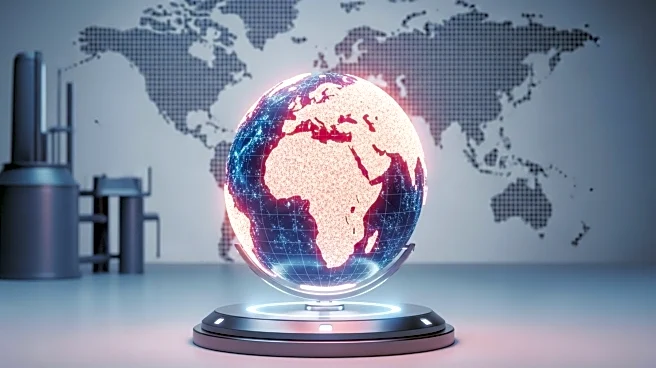What's Happening?
China has announced an expansion of its regulatory oversight on rare earth elements, requiring foreign organizations and individuals to obtain a license to export products containing these elements if they are produced abroad and intended for re-export to third countries. This new regulation, set to take effect on December 1, also prohibits exports to foreign military forces or entities listed on China's control or surveillance lists. The move comes shortly after President Trump announced retaliatory tariffs on Chinese goods, which have already led to bottlenecks in license approvals and impacted global supply chains. Rare earth magnets, crucial for electric vehicles, wind turbines, and weapons, are among the affected components.
Why It's Important?
The expansion of China's rare earth export controls is significant as it affects industries reliant on these materials, including technology and defense sectors. The restrictions could lead to increased costs and supply chain disruptions for U.S. companies that depend on rare earth elements for manufacturing. This development may also intensify trade tensions between the U.S. and China, as it follows President Trump's tariffs on Chinese goods. Companies in the U.S. may need to seek alternative sources or invest in domestic production capabilities to mitigate the impact of these controls.
What's Next?
As the new regulations take effect, U.S. companies and policymakers will likely explore strategies to counteract the supply chain disruptions. This could involve diplomatic negotiations or increased investment in domestic rare earth production. The upcoming meeting between President Trump and Chinese President Xi Jinping at the APEC summit may address these trade issues, potentially leading to new agreements or further tensions. Stakeholders in the technology and defense sectors will be closely monitoring these developments to adapt their strategies accordingly.
Beyond the Headlines
The expansion of rare earth export controls by China highlights the geopolitical significance of these materials, which are essential for modern technology and defense systems. This move may prompt a reevaluation of global supply chains and encourage countries to diversify their sources of rare earth elements. Additionally, it underscores the strategic importance of these materials in international relations, potentially leading to increased investment in alternative technologies or recycling initiatives to reduce dependency on Chinese exports.










